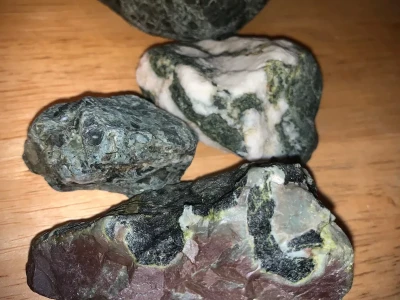Let's get one thing straight. When a company with a 160-year history starts talking about an "unprecedented tariff landscape," you should immediately check your wallet. It’s the corporate equivalent of a magician screaming "Look over there!" while he shoves the rabbit back in his hat.
Orvis, the grand old man of American outdoor gear, just announced it's shuttering 36 stores by early 2026. Thirty-six. That’s not a trim; that’s an amputation. And the reason, according to President Simon Perkins, is tariffs. It’s a clean, simple, blameless villain. The kind of thing a board of directors can nod at sagely before approving their own bonuses.
But I'm not buying it. Not for a second. This isn't a story about tariffs. This is a story about a brand that got lost in the woods, chased the ghost of L.L. Bean, and is now limping back to the trailhead, pretending it was just out for a strategic stroll. The layoffs started long before this—4% of the workforce in June 2025, 8% back in October 2024. Tariffs don't create a slow-motion collapse; they're the gust of wind that finally knocks over the rotting tree.
So, are we really supposed to believe that these tariffs, which affect nearly every retailer that manufactures goods overseas, suddenly made a third of the `orvis stores` unprofitable? Or is it more likely that those stores were already bleeding cash because they were filled with overpriced `orvis clothing` nobody asked for?
The Great Lifestyle Charade
I remember walking into an Orvis store a few years ago. I wasn't looking for an `orvis shirt` to wear to a garden party or a thousand-dollar `orvis dog bed` for a poodle named Sterling. I was looking for the Orvis I grew up hearing about—the one that made the legendary `orvis fly rod` right there in Vermont. The one that smelled like cedar and fly-tying cement, not potpourri.
Instead, I found a boutique.
It was a sea of tasteful beige `orvis pants`, quilted `orvis vest` options that looked suspiciously like a Barbour knockoff, and stacks of home goods. The `orvis fly fishing` section, the very soul of the company, felt like an afterthought, relegated to a corner as if it were a slightly embarrassing relative. This was a classic case of brand drift. No, 'drift' is too gentle—it’s a five-alarm dumpster fire of identity. They got so obsessed with chasing the "affluent lifestyle" customer that they forgot the people who actually built their brand: the folks who stand in a cold river at 5 a.m. waiting for a bite.

This "refocus" on fly fishing and bird hunting isn't a brilliant new strategy. It’s a panicked retreat. It’s an admission that the grand experiment failed. They tried to sell the aesthetic of the outdoors to people who prefer to experience nature through a panoramic window. And offcourse, it backfired. You can't fake authenticity, and for the better part of a decade, Orvis has been trying. The market is littered with the corpses of companies that forgot who they were. Remember when RadioShack tried to sell cell phones? How’d that work out for them? Orvis trading its hardcore fishing cred for a slice of the preppy suburban pie is the same story, just with more flannel.
They wanted to be everything to everyone, and now they're... well, they're a company closing 36 stores.
A Durable Brand or a Managed Decline?
The PR line is that this move is to "ensure a durable brand and model for decades to come." It’s a nice, reassuring phrase. It sounds strong. It sounds proactive. But what does it actually mean? To me, it sounds like circling the wagons. It means shrinking back to a core, profitable niche and hoping to god you can defend it.
The real question nobody at Orvis is answering is what happens to the people. The company has "declined to identify which specific store locations are closing," which is a fantastically cold way of saying hundreds of employees are about to have their lives upended, but they’ll find out when we get around to telling them. It’s a masterclass in corporate cowardice.
And what's left for the customer? A website and the "Orvis Adventures" business. Great. So the company that built its reputation on the tangible, hands-on quality of an `orvis fly rod` is now retreating into the digital ether, just like everyone else. They're becoming less of a place and more of an idea—and ideas don't pay the bills unless they're damn good ones. Can a brand built on heritage and physical craftsmanship truly thrive when its primary presence is a URL? Maybe. Then again, maybe I'm the crazy one here.
This whole mess ain't about tariffs. It’s about a company that diluted its own potent formula. It’s like a master distiller deciding to add soda water to his 25-year-old single malt to make it more "accessible." You don't get a new audience; you just piss off the one you had. Now, Orvis is frantically trying to pour the soda out of the bottle, but the whiskey is never going to taste the same again.
Blame the Tariffs, Save the MBAs
Let's be real. This is a self-inflicted wound disguised as an act of God. The "unprecedented tariff landscape" is just the perfect cover story for years of bad decisions made by executives who probably spent more time looking at spreadsheets than they ever did at a trout stream. They chased a trend, diluted a legendary brand, and when it all came crashing down, they pointed at a line item on an import document and said, "It was him!" It’s a predictable, sad, and infuriating end to a chapter for a company that should have known better. This isn't a strategic pivot; it's the cost of losing your soul.

